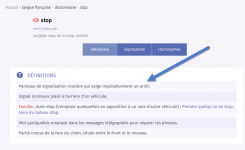I've never understood that argument from the Parisian...
UK speaks English one way with certain idioms and even has sub-regional differences, USA speaks English another way with certain idioms and even has sub-regional difference, same goes with Canada (anyone talk to newfies!? took me a while to get used to the in-laws)
Same goes for Portuguese spoken in Portugal vs Brazil, or Spanish from Mexico and Spain or even some south american countries... and for some reason, Quebec French is a butchered version and France (which LOVES to use English words in their language) that has several versions of French within it (like Marseilles French and other provincial ones)...they think they're so high and mighty but everybody can understand each other if they really want to.
Considering that people still speak French in North America should be quite surprising in itself.
Language evolves to adapt to its environment just like anything else.
To a lot of Quebecers, parisian french sounds like talking French with a stick up the rear end.
UK speaks English one way with certain idioms and even has sub-regional differences, USA speaks English another way with certain idioms and even has sub-regional difference, same goes with Canada (anyone talk to newfies!? took me a while to get used to the in-laws)
Same goes for Portuguese spoken in Portugal vs Brazil, or Spanish from Mexico and Spain or even some south american countries... and for some reason, Quebec French is a butchered version and France (which LOVES to use English words in their language) that has several versions of French within it (like Marseilles French and other provincial ones)...they think they're so high and mighty but everybody can understand each other if they really want to.
Considering that people still speak French in North America should be quite surprising in itself.
Language evolves to adapt to its environment just like anything else.
To a lot of Quebecers, parisian french sounds like talking French with a stick up the rear end.






















